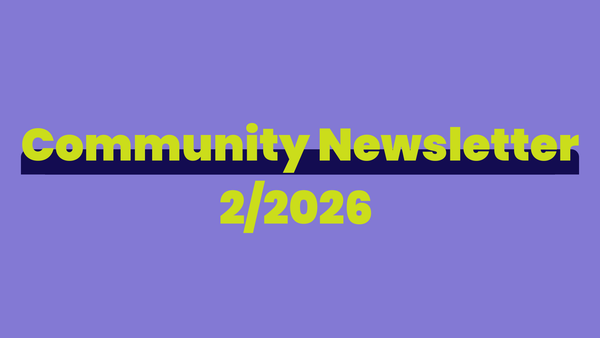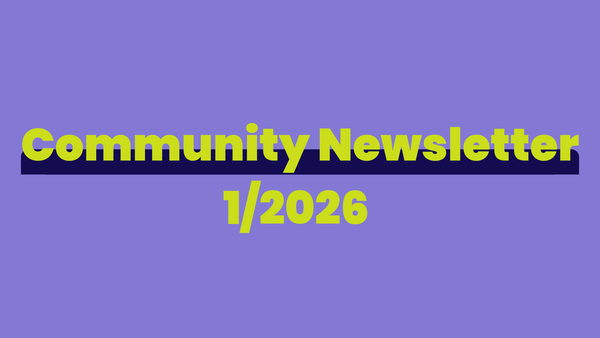International Talents and industrial companies research
Welcome to read our research where we wanted to identify barriers and solutions to developing diversity in hiring international talents for Finnish industrial companies.
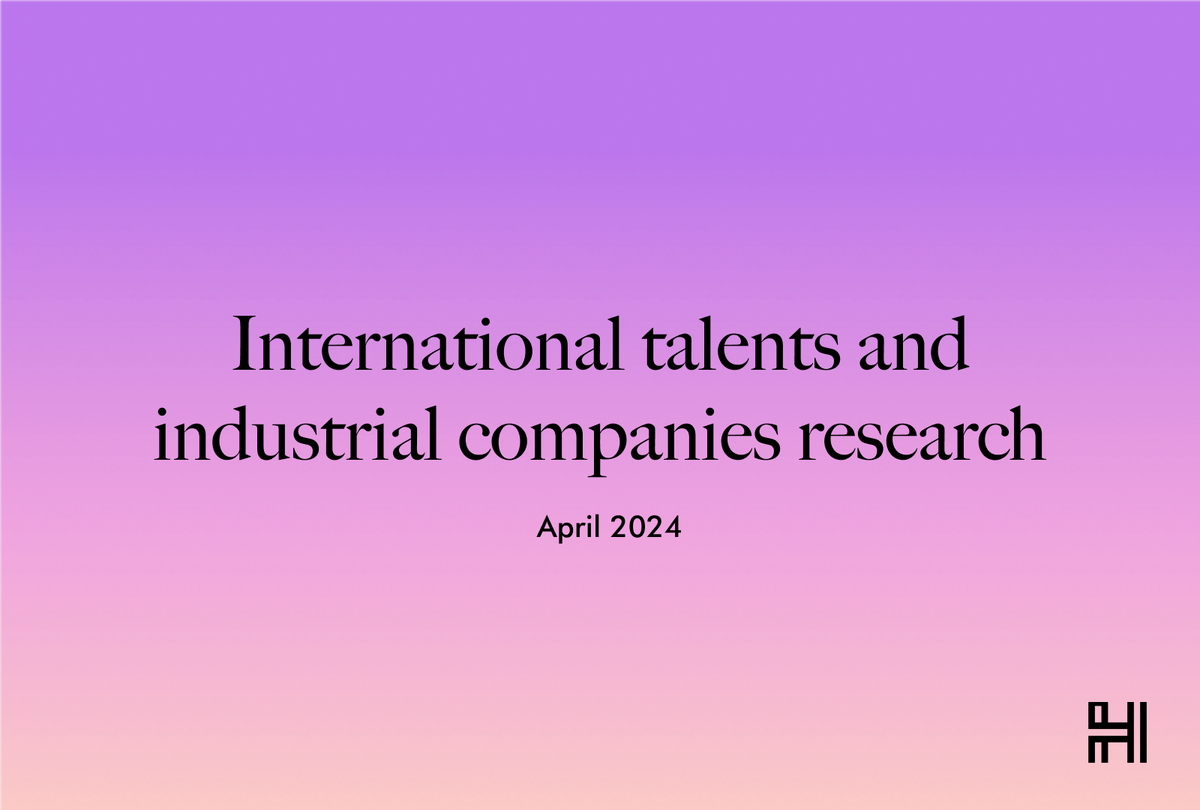
Welcome to read the results of our research on International Talents and Industrial Companies. 🎉
We are examining the role of international talents and the importance of diversity in Finnish industrial enterprises. Herizon has identified that Finnish companies often have misconceptions about hiring international talents and that they would be willing to hire international talents in principle if they got support for it.
Finland is known for its strong industry, which is why we focused this survey on industrial companies. Our goal was to identify barriers and solutions to developing diversity in hiring international talents for Finnish industrial companies.
Additionally, our aim was to better understand attitudes towards hiring international talents and the need for support, and to share findings with both the public sector and industrial companies considering hiring.
And of course, in the long run, we aim to contribute to strengthening industrial expertise, competitiveness, and innovation capability through diversity.
Background
A total of 171 individuals responded to the survey.
The demographic data of the respondents indicate that the majority of them hold positions as upper or other executives (45%), specialists (18%), or employees (18%), while managers accounted for 10% and other roles for 12%.
🌎 Regarding nationality, 96% of respondents were Finnish citizens, while 3% were citizens of non-EU countries and 2% were EU citizens.
The demographic data of the companies show that the industrial sectors were diverse, with the largest sectors being the chemical industry (19%), pulp and paper industry (13%), metal industry (11%), and mining industry (10%). Additionally, 52% of companies operated in other sectors such as defense, electric transportation, technology, and architecture.
The number of employees varied, but most companies belonged to the largest size class, with 10,000 employees or more. Additionally, we observed that 74% of companies operate outside Finland, indicating extensive international operations.
The main locations of company headquarters were mainly in Uusimaa (63%), but Southern Karelia, Pirkanmaa, and foreign locations were also significant according to the responses.
Recruitment in Industrial Enterprises
42% of respondents state that their company has experienced difficulties in finding suitable candidates for job roles.
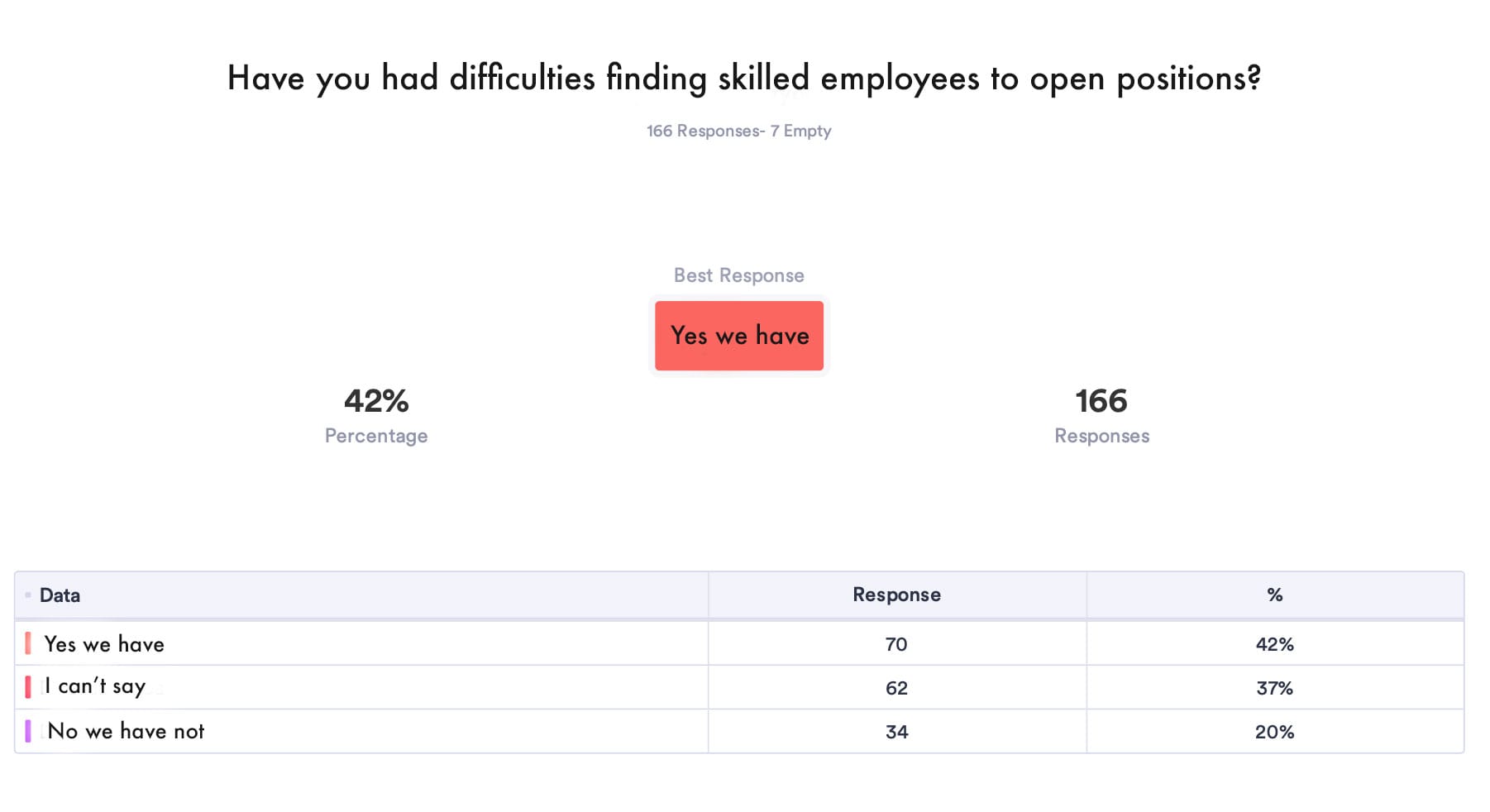
Industrial enterprises use multiple recruitment channels, with the most popular being Open Application, own websites (Other), LinkedIn, Duunitori, and others. Many respondents mentioned services such as TE Services, Oikotie, and internal job applications within the company.
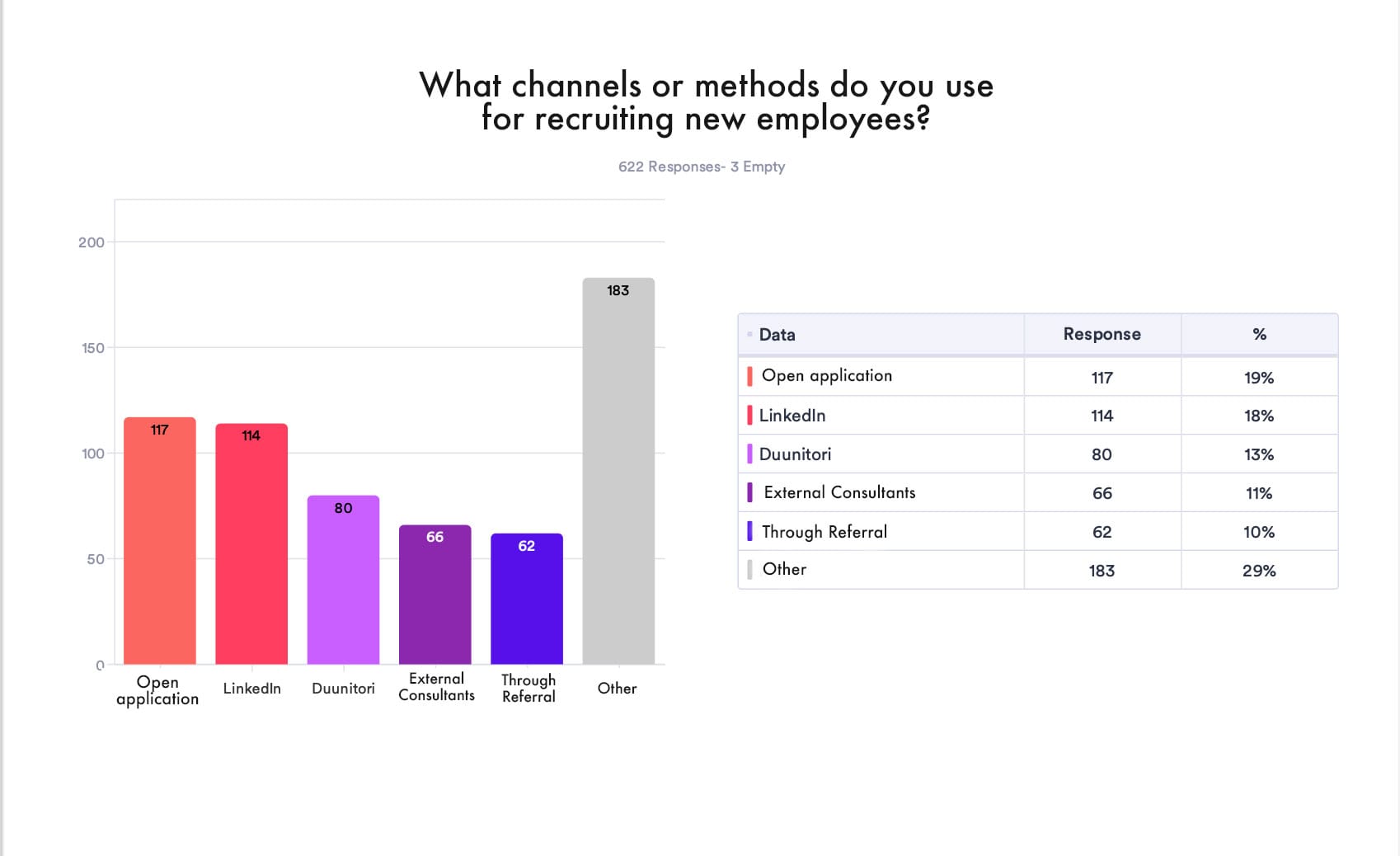
Recruitment processes often involve direct manager, HR, and the company's internal recruiter.
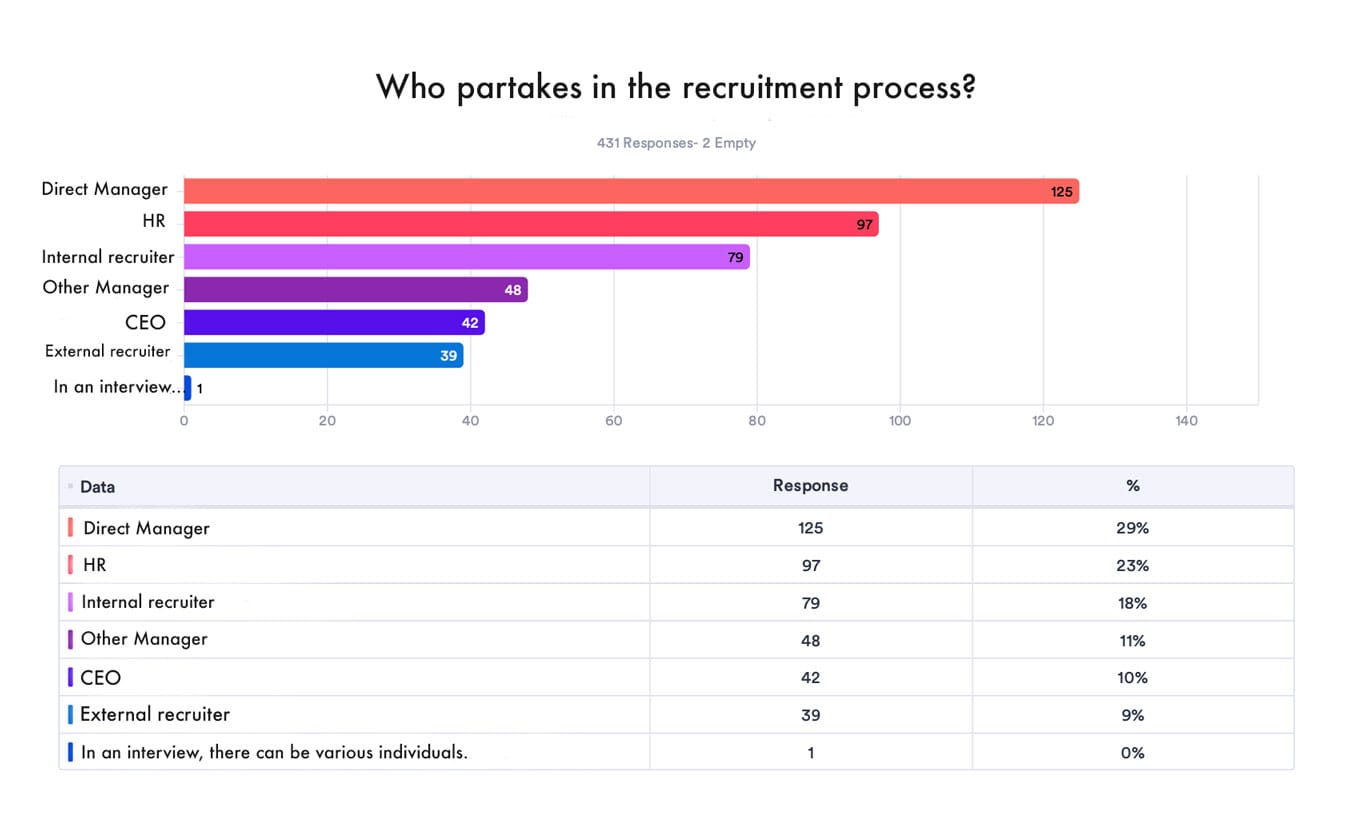
Diversity in Industrial companies
Based on the research findings, it can be said that greater cultural diversity is perceived as beneficial in industrial enterprises.
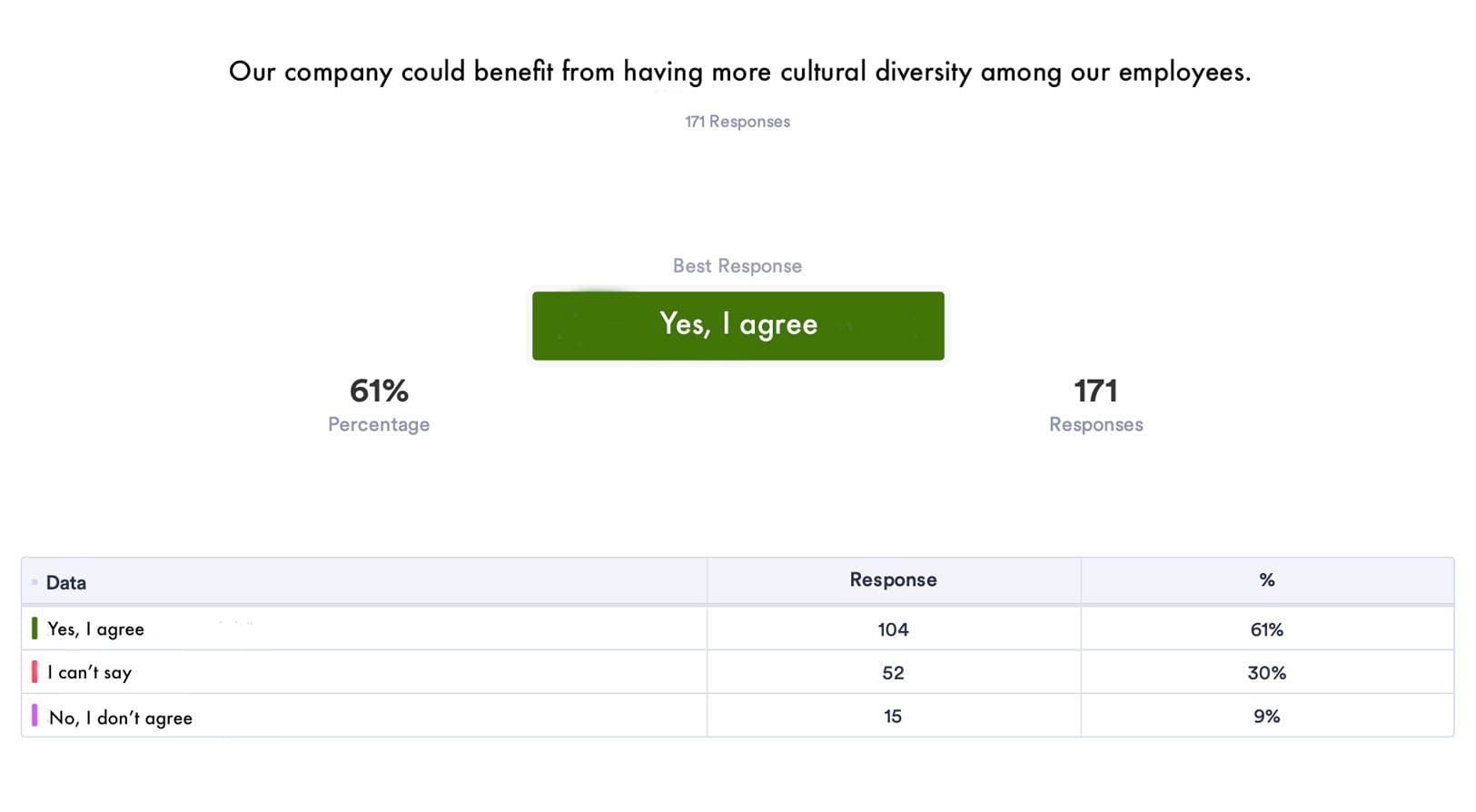
However, the proficiency of employees in Finnish is still perceived as important in industrial enterprises.
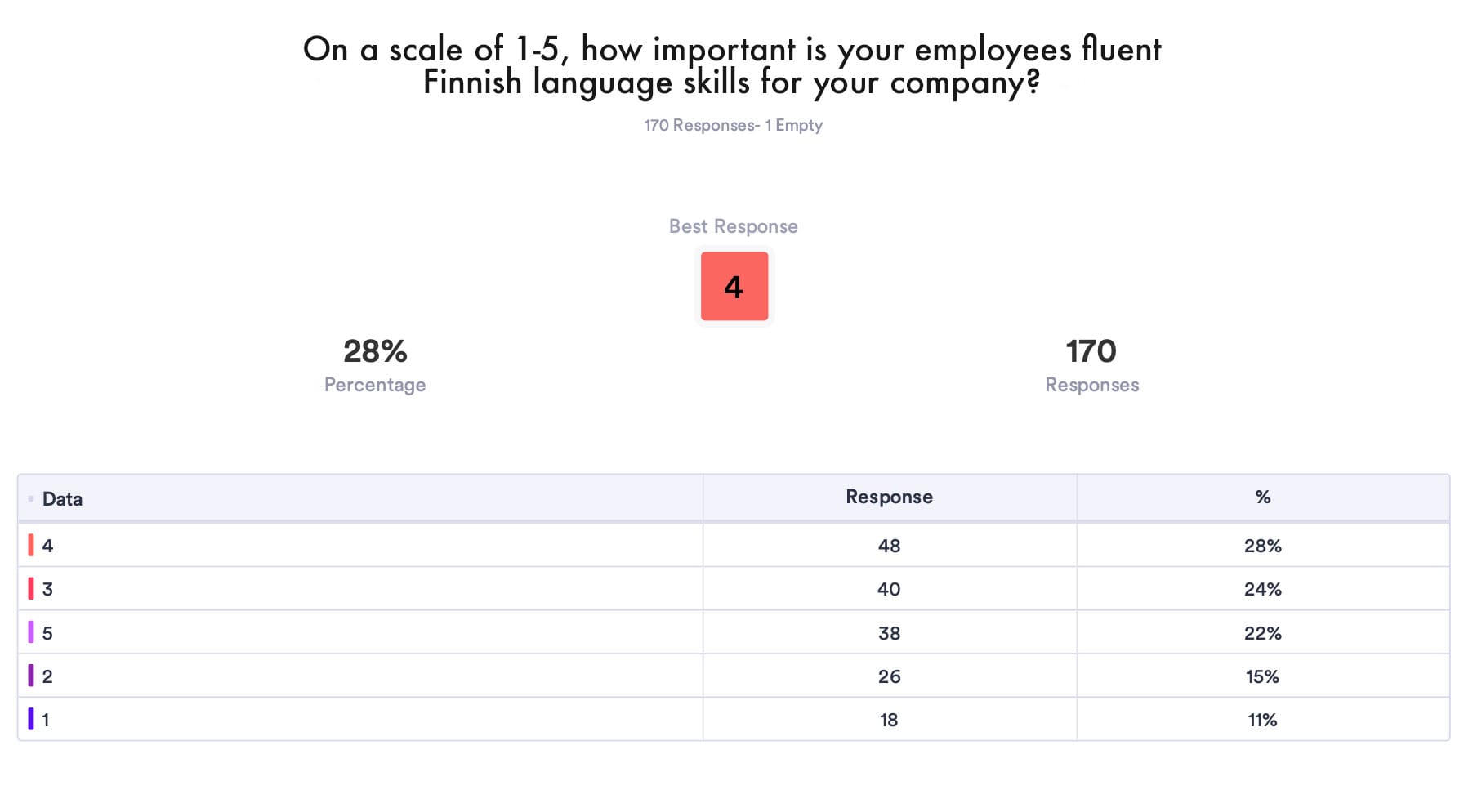
However, for the respondents of the survey, working in Finnish is not equally important.
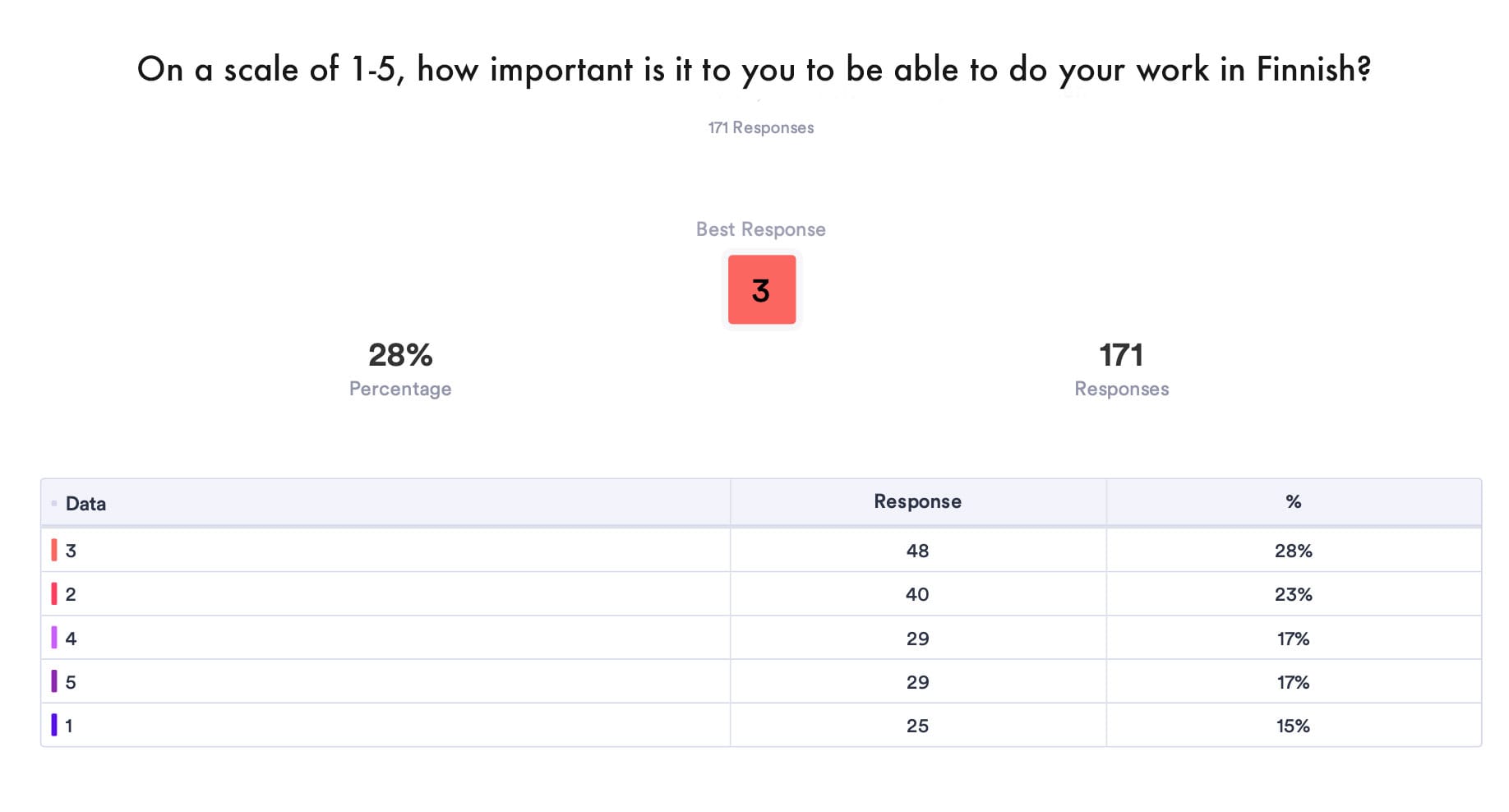
Many respondents mentioned that the needs of industrial companies' customers are listened to, and they may require proficiency in Finnish.
(The quotes are translated from the original quotes in Finnish by the respondents, you can find the originals here.)
"We are a large international company, and decisions come from outside Finland. We are also a consulting firm, and the criteria for tasks are determined based on the needs of the client. So, even though we would like to promote diversity ourselves, ultimately the decision lies with our client."
18-26 year old, Senior Executive
Works in Consulting
"Our clients require proficiency in the Finnish language. Depending on the position, proficiency in Finnish has great importance because documents, contracts, and other materials are in Finnish. However, this is not the case in every role, and documents can be translated depending on the situation."
27-42 year old Executive
Works in Construction Industry
Customers and worksites require proficiency in the Finnish language."
27-42 years old, Supervisor
Construction industry
47% of respondents believe that a foreign worker would easily integrate into the company's work community even if they do not speak Finnish.
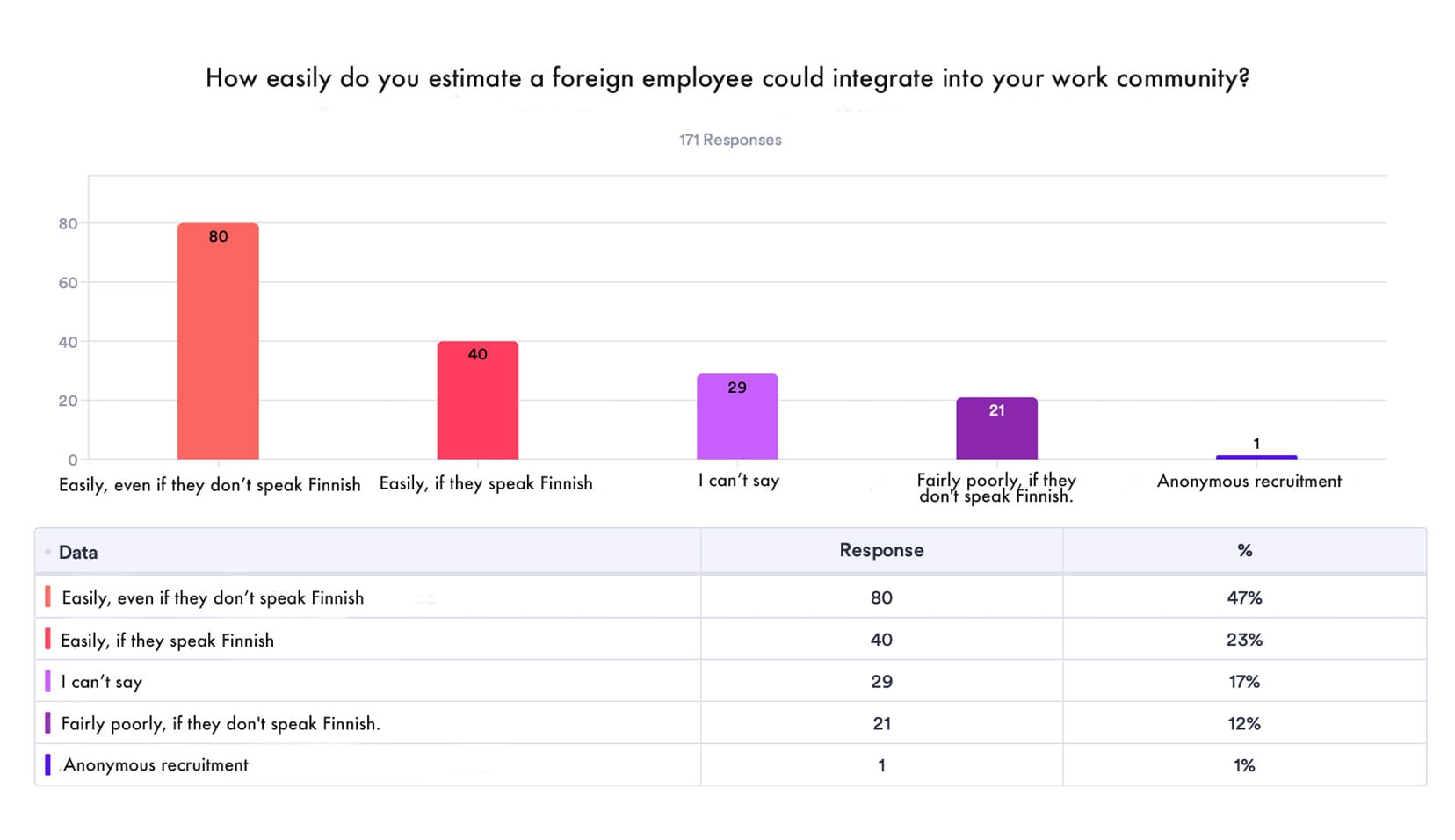
Concerns related to occupational safety are highlighted if an employee lacks proficiency in the Finnish language or understanding of Finnish law.
"Resistance to change is also justified by the fact that occupational safety may suffer or be poor if a person does not understand Finnish laws."
27-42 years old, Executive
Energy sector
"It's a high-risk facility where communication, instructions, systems, etc., are in Finnish. Proficiency in Finnish is essential."
27 years old, Senior Executive
From a paper and pulp industry company with 10,000 or more employees
71% say that diversity strengthens industrial expertise, competitiveness, and innovation capability.
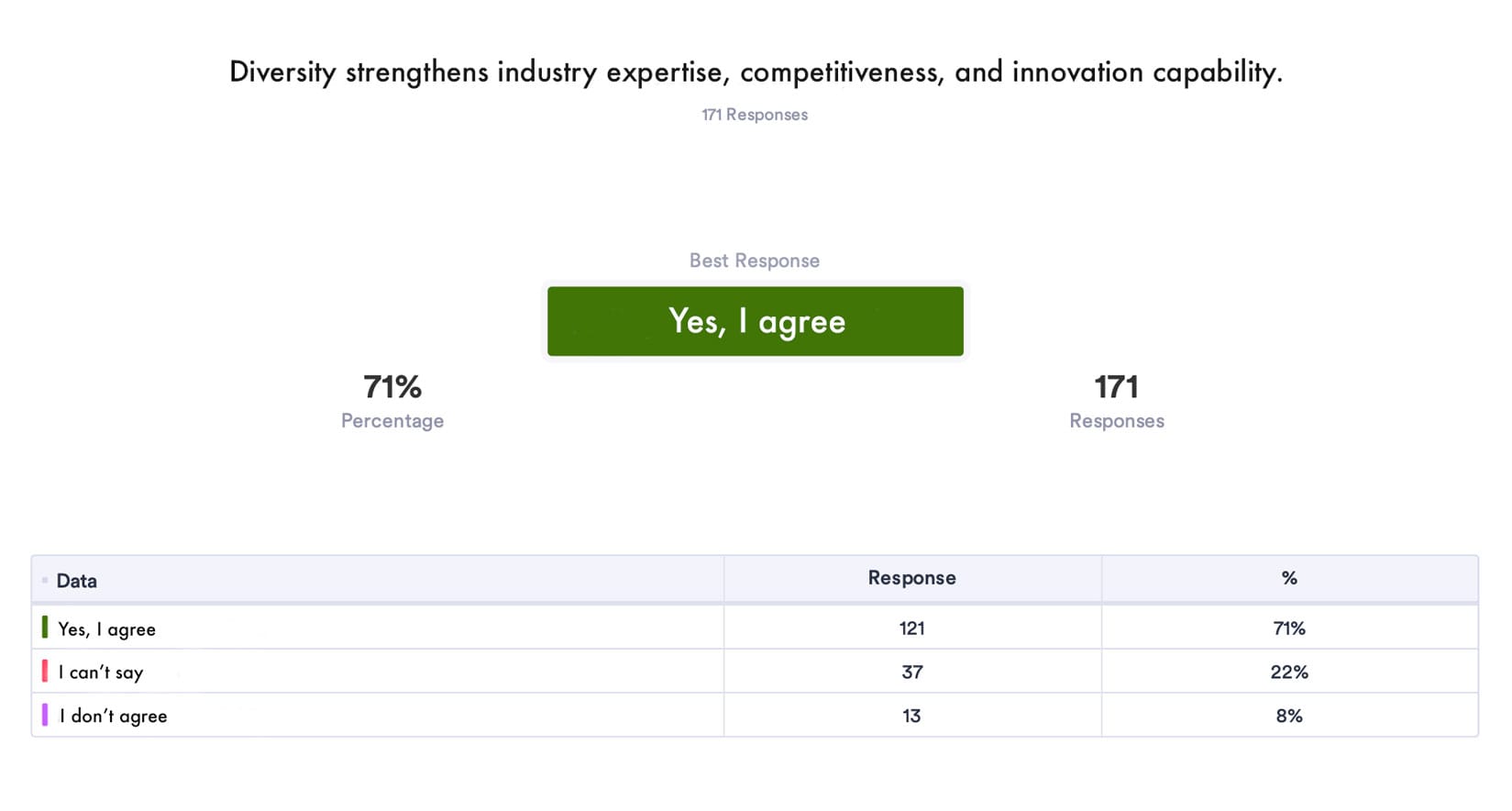
However, women apply for positions in industrial companies less frequently.
"For example, attracting women to the industry is difficult because it is more appealing to men, so women are rare among applicants."
43-58 years old, Manager
Defense and aerospace industry
"As the icing on the cake, the IT industry is overwhelmingly male-dominated. Therefore, we are in a situation where 95% of our company's employees are Finnish-speaking men aged around 40-60. I am a 26-year-old member of the LGBTQ+ community, and even though I am Finnish-speaking, I don't feel quite comfortable in this work environment where I belong to a very obvious minority."
26 years old, Specialist
IT industry, working with Industrial Enterprises
55% of respondents say that diversity and its role and significance are discussed in the company.
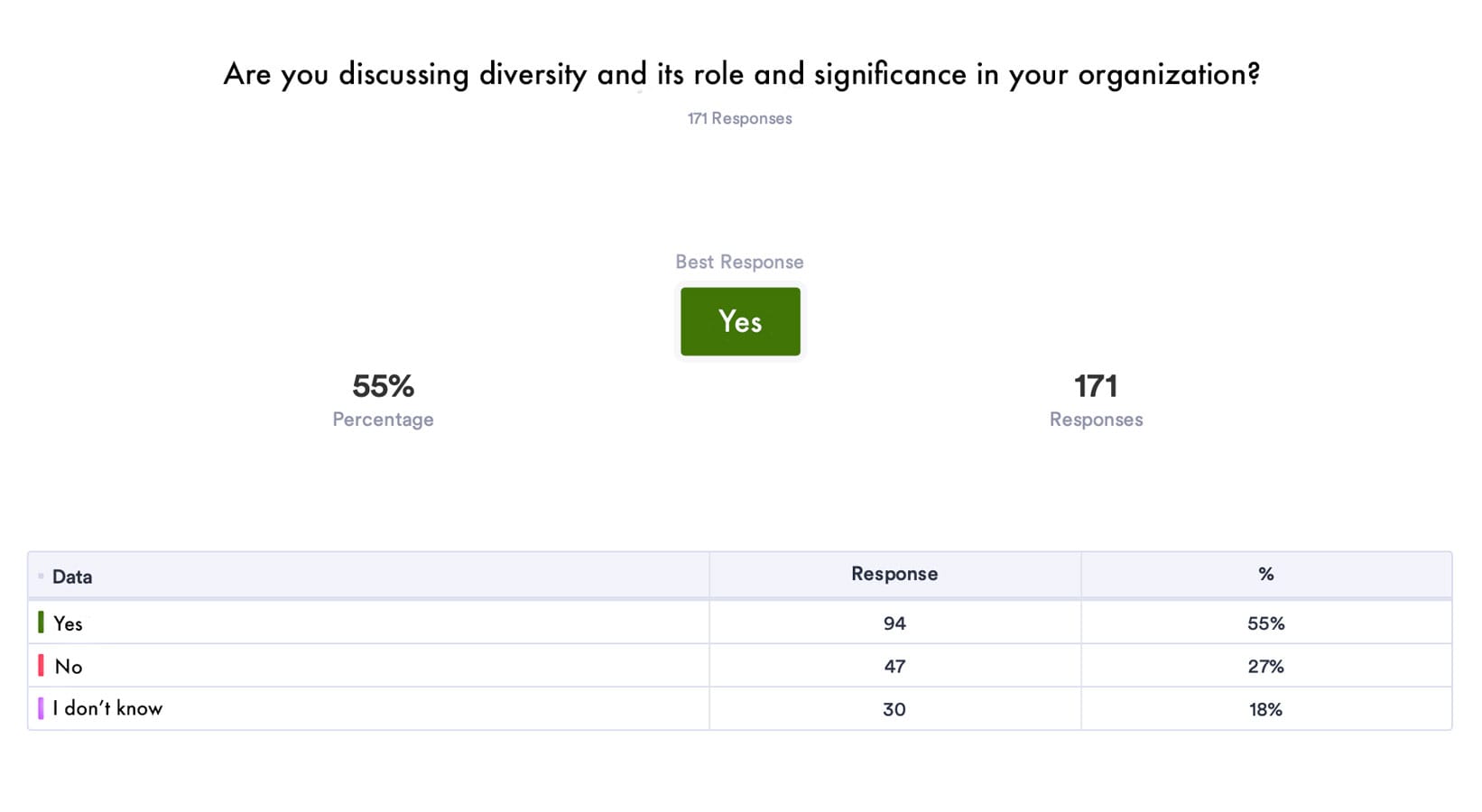
Based on the research, it can be concluded that the management of industrial companies may be conservative, which affects the recruitment process top-down.
"Conservative management and employees/staff lacking language skills."
18-26 years old, Office Worker
Equipment rental company
"In the industry (especially in a factory environment), perhaps the biggest barriers to diversity are the "older" workers who have lived in a time when racism was not discussed and it was the "norm," and the older workers' proficiency in the English language is almost non-existent. However, I believe that in the next 5-10 years, as workplaces get younger experts to replace retiring workers, things will start to improve. In summary: the problem is not so much the old-school workers themselves but the lack of language skills and slightly outdated ways of speaking and acting."
18-26 years old, Employee
Metal industry
"Old thought patterns and prejudices."
18-26 years old, Office Worker
Forestry industry
58% are unsure whether the company would benefit from training programs that would help increase diversity in the company.
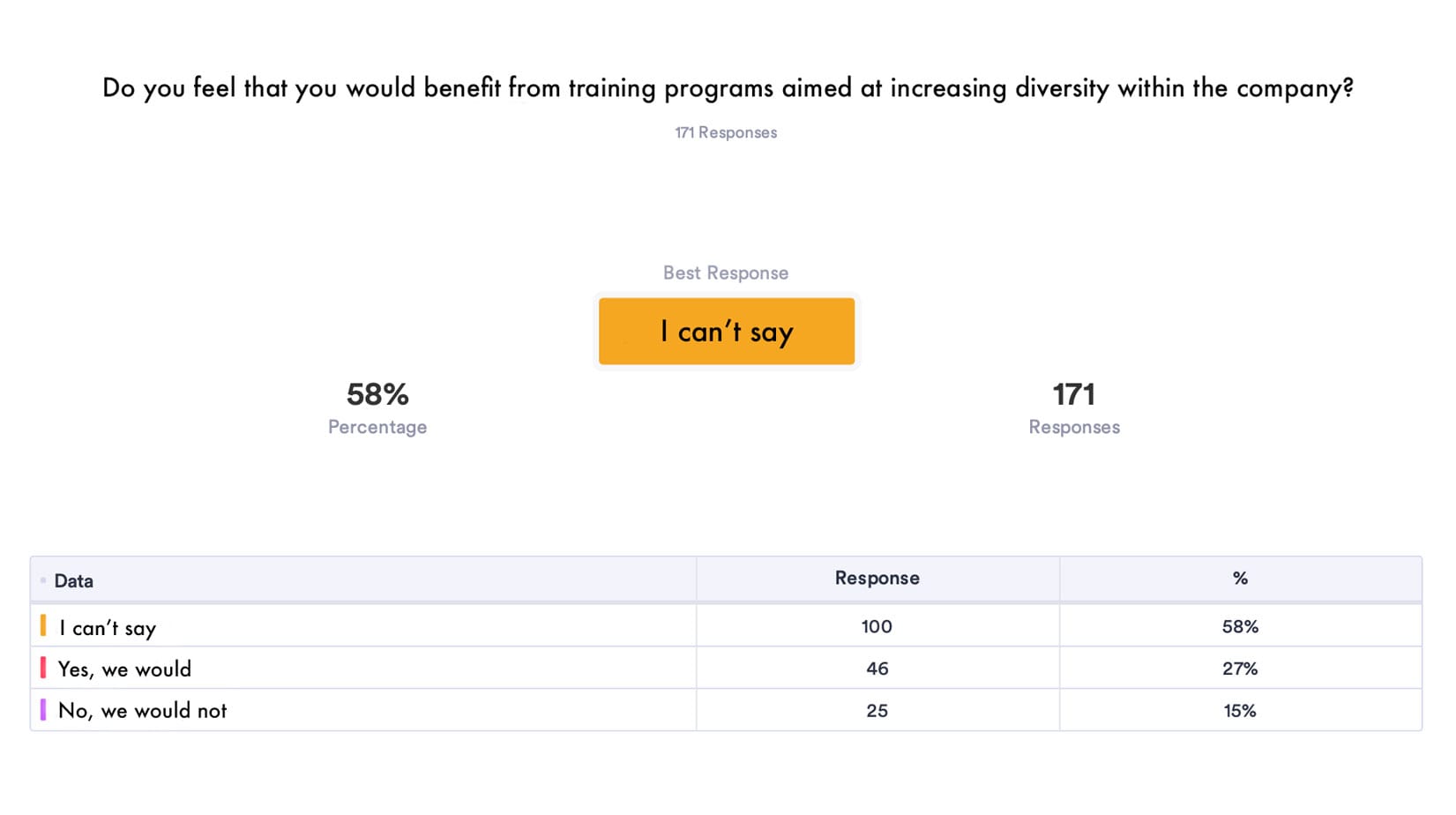
Final words
In conclusion, based on the research, we can say that there is a willingness to hire international talents, and diversity is being discussed in many companies.
However, international talents still face the challenge that Finnish is widely used in various company functions, whether in coffee table conversations or operational instructions. Additionally, corporate clients often demand proficiency in the local language, which poses difficulties for candidates who may not yet fully master Finnish.
Nevertheless, many respondents believe that within about 10 years, language requirements may change, and English could become the main language for many globally operating companies.
When it comes to gender diversity, it has long been recognized in industrial companies that individuals identifying as women do not easily apply for or end up in positions within these companies, and there is much work to be done in this area.
58% of respondents stated that they are unsure whether the company would benefit from training programs aimed at increasing diversity in the company. This indicates that while training is indeed needed, the term "diversity" needs to be broken down into smaller parts and categories so that companies better understand what diversity means and why it is important.
Diversity in companies is important for several reasons:
- Innovation and Creativity: Different perspectives and viewpoints bring about new innovations and inventions.
- Customer-Centricity: Companies often have a diverse customer base, and the diverse backgrounds and experiences of employees can better understand and serve various customers.
- Work Environment: It's important for employees to feel heard and seen, and a diverse workforce enables this better.
- Company Attractiveness: Acquiring new employees and customers is easier if a company has a reputation for being inclusive and having diversity among its workforce and leadership.
Herizon's mission is to employ 10,000 international talents in the Nordic countries by 2027.
We work towards our mission by offering these services to companies:
1. Fraction consulting / staffing
For organizations in need of additional hands and expertise for a project.
2. Direct recruitment for the company – Growth Hacking Internship
Our community consists of 600 individuals seeking new job opportunities, and we match suitable candidates to the company's goals and needs.
3. International market research project
We can collaborate on projects for organizations considering entering a new market and involve the right person from our community who has extensive knowledge and understanding of the target market.
Thank you for reading our research!
Questions or thoughts? Send us a message: hello@herizon.io


